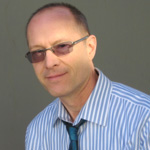 Will Bachand is a patent attorney in Arizona. He will be teaching a course called Profitable Patent Practice at Solo Practice University®. View Syllabus
Will Bachand is a patent attorney in Arizona. He will be teaching a course called Profitable Patent Practice at Solo Practice University®. View Syllabus
Background: My career began as a Carnegie-Mellon graduate designing aerospace electronics. Then at a mid-point I completed law school and began practicing patent law for electronics, software, and telecommunications companies. I’ve been employed solo, small firm, huge firm, and on staff of a few corporations. I really like creating property and defending it. It reminds me of building forts and fighting pirates.
For TASER International: Serving as inside counsel for the past 7 years, I build and manage the patent and trademark portfolio, assist in litigation, and write agreements. I teach, advise, and warn. I am responsible for hundreds of US and foreign patents and trademarks. There is no such thing as focus. I promote innovation, listen to inventors, write patents, respond to Examiners at the USPTO, hire, fire, and direct our foreign patent counsel, and mentor outside counsel. I file trademark applications in the US and through foreign trademark counsel, respond to objections, and enforce our rights on the internet bringing down sites that misuse our trademarks. I am involved in disputes in several foreign courts regarding trademarks and former distributors and in several US lawsuits regarding patent infringement. The domain name portfolio is a shared responsibility. I respond to issues on social networks, and design courses for increasing employee awareness for preserving the value of trademarks.
For Bachand Law Office: This is a solo practice without staff. It grew by word of mouth. The first client I took as a Patent Agent in law school. Now, as outside counsel for a non-practicing entity, a few mid-size manufacturers, and a few research and development companies, I identify patentable subject matter and brand concepts. I write and prosecute patent and trademark applications, as a solo practitioner and with foreign associates. Some of these clients I have served for ten years.
Follow Will on Twitter (@patentgenius).
Classes begin one week from today and continue one class each month until course completion.
Syllabus – Profitable Patent Practice
This series of seven one-hour lessons is directed to students who understand basic patent law and have possibly passed the patent bar exam. We begin with finding the client whom you can work with profitably; and, proceed toward writing the patent application complete with drawing, claims, and specification. Along the way, you will learn how to gain the inventor’s trust, use your time most effectively, and produce a patent application that has a better than average chance of becoming a valuable patent.
Taking the case
- Fielding questions at cocktail parties
- Listening for an invention
- Knowing your limits, what’s not worth your effort
Talking to the inventors
- Suspending disbelief, being curious
- Systematically asking questions
- Using your imagination
Quickly learning what is already known
- Searching
- Discovering what the author didn’t teach
- Listing what’s different
Sketches of the invention
- Choosing an appropriate kind of sketch
- General to specific – purpose, function, structure, operation
- Functional decomposition
Writing the claims first
- Naming the parts
- Method, article, marketable product
- Contributory infringement
Systematically writing the description of the invention
- Writer’s block
- Describe the invention not the drawing
- Appropriate words and phrases
Proofreading the draft
- Begin with the claims the way a court will read the patent
- Prepare for “means for” constructions
- Does the drawing teach the claimed invention?
- How much of the specification is new?